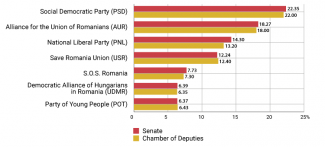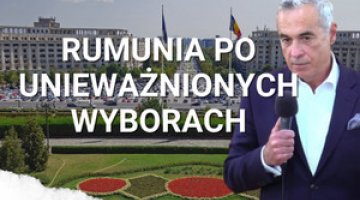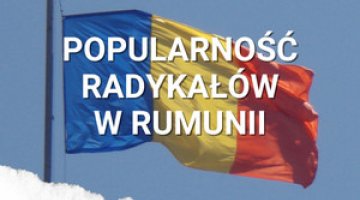Romania after the parliamentary election: a shift to the right
In the parliamentary election held in Romania on 1 December, the centre-left Social Democratic Party (PSD), which co-formed the ruling coalition, secured the largest share of the vote, gaining 22.4% in the Senate election and 22.1% in the Chamber of Deputies election. The radical, Eurosceptic, and nationalist-conservative Alliance for the Union of Romanians (AUR) placed second, receiving 18.3% and 18%, respectively. The centre-right National Liberal Party (PNL), which had co-governed with the PSD, came third with 14.3% and 13.2%. Meanwhile, the liberal centre-right Save Romania Union (USR) obtained 12.2% and 12.4%, and the extreme right, pro-Russian S.O.S. Romania party garnered 7.7% and 7.3%. Other parties surpassing the electoral threshold included the Democratic Alliance of Hungarians in Romania (UDMR; 6.4% in both chambers) and the Party of Young People (POT; 6.4% in both chambers), a party linked to AUR. Voter turnout stood at 52.36%.
While a broad coalition of mainstream parties is likely to form the post-election government, it is noteworthy that radical right-wing parties, which are resistant to European integration and, in some cases, openly pro-Russian, have achieved unprecedented electoral success. This surge in popularity reflects growing public disillusionment with mainstream parties, which have been embroiled in numerous corruption scandals. Discontent with EU membership has also contributed to the appeal of radical parties, with some voters accusing the EU of bias against Romania.
Commentary
- The election marks a significant triumph for the radical and strongly Eurosceptic right, which collectively garnered approximately one-third of the vote, tripling their previous vote share in 2020. At that time, AUR was the sole party of this nature to surpass the electoral threshold, winning around 9% of the vote. However, the POT’s platform remains ambiguous. This newly established party entered Romania's political scene only a few months ago, positioning itself as a right-wing group championing freedom and traditional Christian values, while refraining from adopting clear positions on the EU or Russia. Romanian media generally interpret this platform as a strategy to attract voters, viewing the party as effectively Eurosceptic. Evidence of this includes the party’s support for Călin Georgescu, the right-wing radical who won the first round of the presidential election on 24 November, and the fact that POT leader Anamaria Gavrilă previously served as an AUR-endorsed parliamentarian in 2020.
- The most likely post-election scenario involves forming a ‘pro-European’ coalition, potentially including the PSD, the PNL, the UDMR, and the USR. However, negotiations are expected to be fraught with challenges stemming from mutual distrust and past conflicts. Although the PNL has co-governed with the PSD since 2021, it exited the coalition in October, accusing the PSD of leveraging its control of the Constitutional Court to disqualify a presidential candidate. The USR, which has gained popularity through its anti-corruption stance and criticism of mainstream parties, may be hesitant to join such a coalition due to reputational concerns. Nevertheless, it might support a minority government to counteract radical forces. The potential for cooperation between the PSD and the USR may also hinge on whether the PSD backs USR leader Elena Lasconi in the presidential runoff on 8 December, where she faces the nationalist and right-wing radical Georgescu.
- The election results signal a significant rightward shift in Romanian politics. Although Eurosceptic and extreme forces will not be part of the new government, their growing influence will compel the future coalition to address, or at least acknowledge, some of their demands. Under pressure from radical narratives, the PSD, which will likely dominate the new government, may revive nationalist rhetoric – emphasising economic protectionism and traditional values – reminiscent of its past stances. It could also revisit themes centred on national sovereignty, as it did during the 2017–2018 dispute with the European Commission over the rule of law. Signs of this shift were evident immediately after the exit poll results were announced, with Prime Minister Marcel Ciolacu (the former PSD leader) emphasising that the election results were ”an important signal” for Romania to develop using investment and European funds, while protecting its “tradition, national values, and faith”. This conservative turn, at least in rhetoric, will become even more pronounced should Georgescu be elected president.
Chart. Results of the parliamentary election held in Romania on 1 December 2024

Source: Permanent Electoral Authority.




